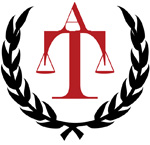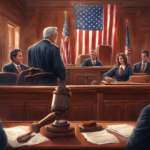Five Ways You Can Protect Your Personal Injury Settlement During a Divorce
After experiencing a tragic accident, many people will receive a personal injury settlement with the help of skilled personal injury lawyer Washington DC trusts. In some cases, this amount of money is significant. It’s also possible for the spouse of an accident victim to want out of the marriage. The money from the settlement, or at least a portion of it, may be something both spouses feel they are entitled to have. When an accident victim has their marriage end, it’s possible for them to protect the money they received from the accident settlement.
Division Factors
A personal injury award can be a significant portion of a couple’s assets. What happens to it during a divorce will depend on a number of factors:
- If the couple lives in an equitable distribution state or a community property state.
- The date the accident occurred.
- The expected date of the divorce.
- If the personal injury award was itemized.
Community Property States
In community property states the divorce laws say all assets acquired during the marriage are considered marital property. This means that the property is owned equally by both spouses. Upon divorce, the property is divided equally. Property acquired prior to the marriage will be considered separate property and owned by the individual spouse.
Equitable Distribution States
In these states, if spouses cannot agree on the distribution of marital assets, it will be determined by a court. Things taken into consideration will be each spouse’s individual contribution to the marital assets, all marital property involved and more. Assets can be distributed to a spouse instead of alimony or as part of their compensation.
State Laws
According to the laws of 14 states as well as the District of Columbia, personal injury settlement awards are marital property. There are nine community property states. Among those states, Arizona, Louisiana, New Mexico, Texas, Nevada, Washington, and Idaho claim a portion of the settlement award for lost wages. It is always considered marital property and awards for pain and suffering are considered separate property. California is a community property state. In that state, all elements of a personal injury award are considered marital property. The remaining states make separate considerations for pain, suffering and other elements of a personal injury settlement.
- Avoid Joint Accounts
In order to have a chance to keep a personal injury settlement, it’s important to avoid putting it into a joint account. This is essential if someone wants to keep their settlement during a divorce. It’s important for people to realize that once any amount of money is co-mingled in a joint account, it’s easy to lose at least half of it.
- Divide Settlement
As soon as a person gets a settlement, they need to make certain they know all the elements of it. This includes knowing what portion is for pain and suffering, how much is for lost wages, and how much is for payment of medical bills. They need to make certain no part of the settlement is used for anything related to their spouse.
- Don’t Use Marital Funds
It’s important to avoid using marital funds for anything related to the accident. This includes medical bills, medical devices, and rehabilitation. When a person is facing a divorce it may be difficult to prove what funds were used to pay expenses. Where they paid from the settlement or marital funds? Keep close track of your spending and document each purchase and where the funds came from to make that purchase.
- Get Spousal Agreement
During a divorce, a personal injury settlement will likely not be the only asset the couple will need to divide. If it is an amicable divorce, it is possible a spouse will receive other assets so the accident victim can keep their settlement. In some situations, this will benefit both spouses.
- Speak with an Attorney
An experienced divorce attorney will know their state’s laws, courts, and judges. They will know the best ways for a person to protect their personal injury settlement during a divorce.
Thanks to our friends and contributors from Cohen & Cohen, P.C. for their insight into protecting a personal injury settlement.






